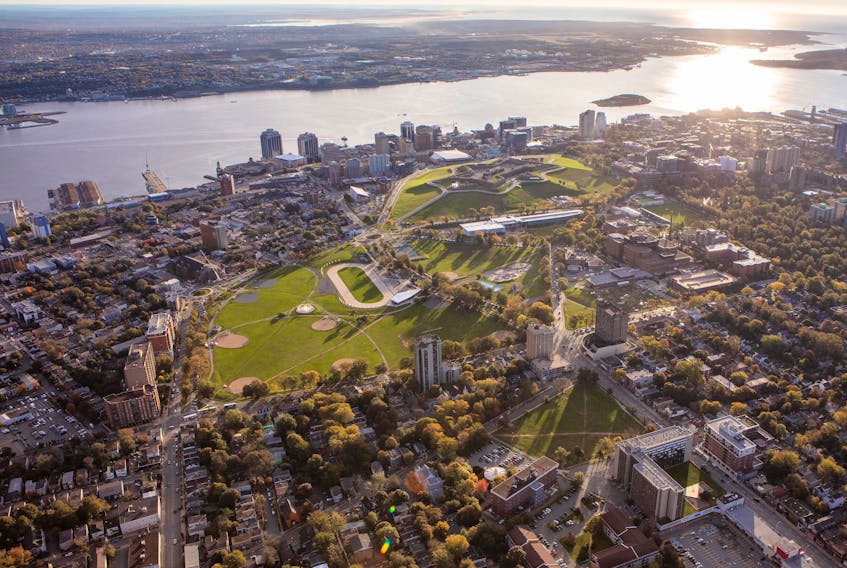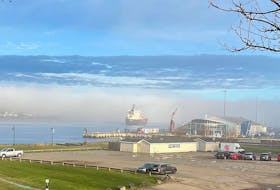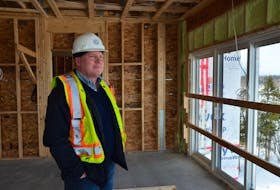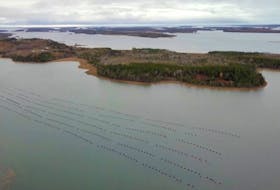The federal government’s ambitious 2021-2023 immigration levels plan will allow the Halifax region and Nova Scotia at large to continue on a long-term path of growth, despite a short-term bump that COVID-19 has presented, an economist says.
In 2019, Nova Scotia welcomed a record-breaking 7,580 new permanent residents.
Halifax Partnership’s chief economist Ian Munro said “continuing the steady flow of immigrants that we’ve seen is a good thing.”
“Even though we’re all kind of hitting a bump with COVID in terms of GDP growth and employment and all sorts of things like that, ... when you keep an eye on the longer term goals and objectives, this is what we need,” he said.
Revealed on Oct. 30, the immigration levels plan aims to bring 401,000 new permanent residents to Canada in 2021, 411,000 in 2022 and 421,000 in 2023.
The plan focuses on skilled workers, attracting new immigrants into rural areas and community-based selection models like the Atlantic Immigration Pilot. Through the AIP, the target is to bring 6,000 immigrants to Atlantic Canada in 2021, 6,250 in 2022 and 6,500 in 2023.
The federal government also hopes to welcome about 60,000 refugees and protected persons to Canada as well as just over 100,000 sponsored family members each year over the next three years.
The key to both short-term economic recovery and long-term prosperity is immigration. And that’s exactly why Canada’s Immigration Plan, which we unveil today, lays out a bold vision to support 🇨🇦 success. https://t.co/bLqTZRlOnG
— Marco Mendicino (@marcomendicino) October 30, 2020
According to Munro, Halifax needs to attract more immigrants to grow its population, tax base and economy to counteract an aging population and fill labour gaps, which it has been “remarkably successful” in doing so over the past few years.
With the new plan, he said the region is bound to see more economic success in the coming years.
“We’ve shown we have lots of opportunities for people here, employers need those immigrants, they’re truly signing up for things like AIP and bringing the people in, so clearly the opportunities are there,” said Munro.
“We just need to make sure that people who come here feel welcome, find a home and want to set down roots for the long-term.”
Jennifer Watts, CEO of the Immigrant Services Association of Nova Scotia, said “it’s great” to see the federal government’s “strong support” for immigration, which has “always been a strong component to our economic development” in Nova Scotia.
She noted immigrants have played a “very strong role” in combating the pandemic as front-line workers and other essential workers and that they work across “many different sectors” in the province.
“I think it’s recognition once again how important having people come to our country with the skills and talents they do and contributing, but also now in a time of economic recovery, that we really know we need to be putting a major effort in, that immigration is key,” said Watts.
Watts also applauded the plan’s focus on welcoming refugees and family sponsorships, which she said highlight “a commitment to Canada’s humanitarian role and commitment on the world stage.”
"Has the pandemic and its impacts diminished the public’s openness to newcomers? In fact, Canadians have become more open, not less so."https://t.co/aD5BOBddQY
— Environics Institute (@Environics_Inst) October 8, 2020
A recent survey from the Environics Institute found that Canadians’ views toward immigration became more positive in the past year than they have in more than four decades.
Citing the survey, Watts noted the federal government’s plan comes at a time that “Canadians across the board” support immigration and recognize that immigrants “make a significant contribution to the wellbeing of Canada and to social diversity.”
In an email statement, Nova Scotia Immigration Minister Lena Metlege Diab said the provincial government is "supportive of increasing the number of admissions to help make up for the shortfall in 2020 due to the pandemic."
Diab added that there are “many employers still facing labour shortages” in Nova Scotia and that the provincial government will continue to work with its federal partners to welcome immigrants to Nova Scotia, as immigration is “crucial” to the province’s economic recovery and long-term growth.









